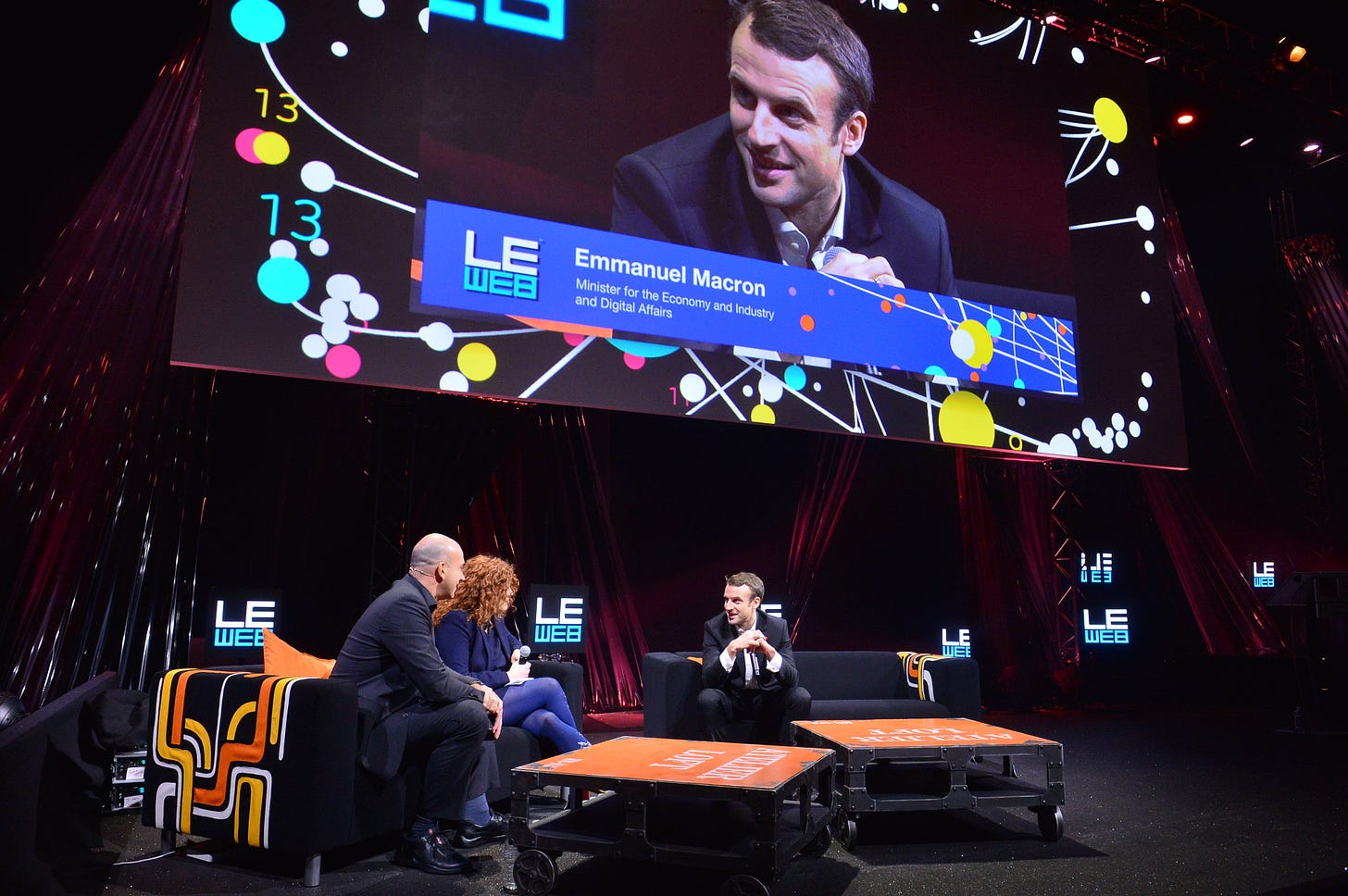The Startup President: Part I
In which a young presidential wannabee melts hearts at a tech conference and a wayward journalist renews a fraught relationship with Paris.

The following is an excerpt from a book project about life in modern France. This week, I’m going to publish in 5 parts a chapter I had written about my e…
Keep reading with a 7-day free trial
Subscribe to French Crossroads to keep reading this post and get 7 days of free access to the full post archives.


